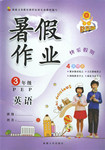题目内容
In the early 1800,s, a boy named John lived in an orphanage(孤儿院) with several other children. Every day was 1 working and Christmas was the one day of the year when the 2 did not work and received a gift ― an orange. The children 3 it so much that they kept it for weeks, and even 4 smelling it, 5 it and loving it. Usually they tried to preserve(保护) it for so 6 that it often went bad before they ate it.
This year John knew he would soon be 7 enough to leave. He would save the orange until his birthday in July. If he preserved it 8 ,he might be able to eat it on his birthday.
Christmas day finally came. The children were so 9 as they entered the dining hall. In his excitement, John knocked over something, causing a big 10 . Immediately the master shouted, "John,leave the hall and there will be no orange for you.”John's heart 11 . He turned and ran back to the 12 room so that the children wouldn't see his tears.
Then he heard the door open and the children entered. Little Elizabeth with a 13 on her face held out her small hands. "Here John," she said, "this is for you. " As John 14 his head,he saw a big juicy 15 all peeled and quartered ... Each child had sacrificed(舍弃) their own orange by 16 a quarter and had created a big,beautiful orange for him.
John never forgot the sharing,love and personal 17 his friends had shown him that Christmas day. 18 that day,after he became rich,every year he 19 send oranges all over the world to children everywhere. His 20 was that no child would ever spend Christ?mas without a special Christmas fruit!
( ) 1. A. forced B. passed C. taken D. spent
( ) 2. A. parents B. children C. nurses D. keeper
( ) 3. A. needed B. wanted C. valued D. missed
( ) 4. A. months B. days C. years D. seasons
( ) 5. A. tasting B. watching C. pressing D. touching
( ) 6. A. much B. soon C. long D. far
( ) 7. A. old B. strong C. tall D. experienced
( ) 8. A. seriously B. carefully C. secretly D. softly
( ) 9. A. nervous B. excited C. pleasant D. eager
( ) 10. A. cry B. disappointment C. surprise D. noise
( ) 11. A. jumped B. stopped C. broke D. settled
( ) 12. A. cold B. small C. old D. lonely
( ) 13. A. look B. tears C. comfort D. smile
( ) 14. A. shook B. lifted C. put D. turned
( ) 15. A. gift B. surprise C. orange D. wonder
( ) 16. A. sharing B. breaking C. eating D. taking
( ) 17. A. feelings B. affairs C. relation D. sacrifice
( ) 18. A. In return for B. In case of C. In memory of D. In search of
( ) 19. A. must B. would C. might D. should
( ) 20. A. desire B. idea C. meaning D. thinking
1- 5 DBCAD 6-10 CABBD
11-15 CADBC 16-20 ADCBA
本文讲述的是一个小时候在孤儿院长大,长大后在社会上感恩的人的故事。
1. D从后面的working—词与动词的搭配来看,应为spend time doing sth.
2. B上文说"(孩子们的) 每一天都用来干活",告诉读者圣诞节是他们一年中不干活而且获得礼物的一天。因此,此处应为"孩子们"。
3. C从下文kept it for weeks可知,非常"珍惜"礼物,而非"想要"、"需要"或"想念"礼物。
4. A从even—词表递进的功能可知,此空应填months.
5. D先用鼻子闻,后触摸,再到深爱,描写了孩子们对礼物的感情变化。
6. C "橘子"只有存放太久才会变坏。
7. A孤儿长到足够大的时候就应离开孤儿院了。
8. B从圣诞节到七月有七个月的时间,一个橘子只有十分仔细地保管才有可能不会坏掉。
9. B从上文可知,孩子们一直盼望着圣诞节的到来,所以,当圣诞节到来的时候,他们应是很激动。
10. D碰翻了东西,只能是弄出响声。
11. C本来期待已久想得到一个橘子,可孤儿院的主人却不给他那个礼物,他的心可想而知是碎了。break此处表"破碎"。
12. A时至冬天,又是孤儿院,主人又那么刻薄,孩子们住的房子不可能很暖和。
13. D根据前面的a big用词和下文中孩子们用自己的橘瓣拼凑起来的橘子情景,此处应为smile.
14. B "抬起头"应是lift one's head。
15. C从与juicy的搭配可知。
16. A从上文中所用peeled—词和下文created a big,beautiful orange短语可知,孩子们是在与John分享他们的橘子。
17. D前面提到"共享"、"友爱",后面应是"奉献"才能与之构成递进的并列关系。
18. C上文谈到他从未忘记那个日子,下文又谈到他到全世界给孩子们送橘子。这种描述就是表明John是为了纪念那个特殊的圣诞节。in memory of意为"纪念"。
19. B表过去的意愿用would。
20. A他的行为是受愿望支配的。desire表“心愿”。

 第三学期赢在暑假系列答案
第三学期赢在暑假系列答案 学练快车道快乐假期暑假作业新疆人民出版社系列答案
学练快车道快乐假期暑假作业新疆人民出版社系列答案